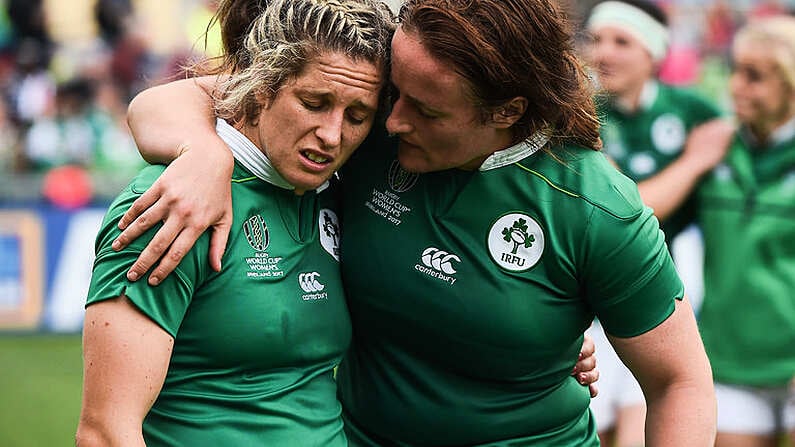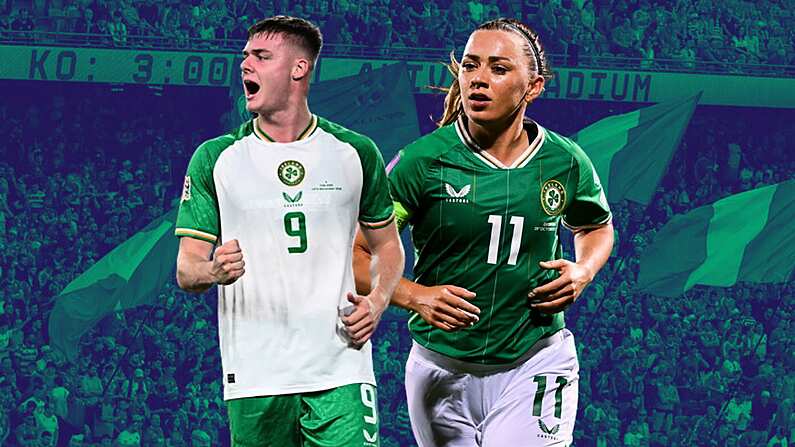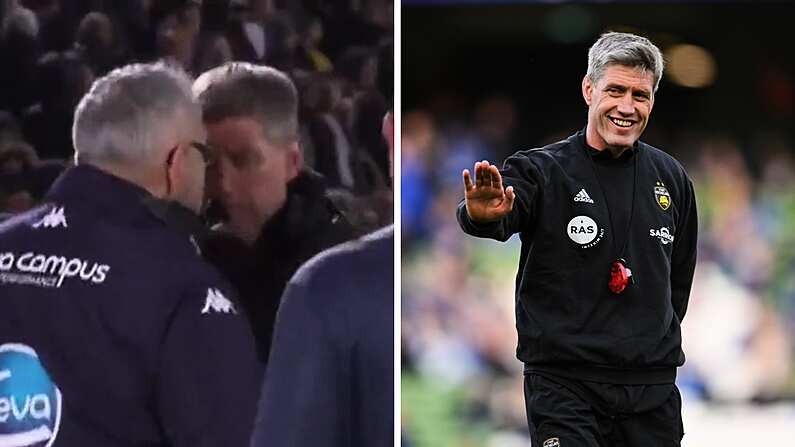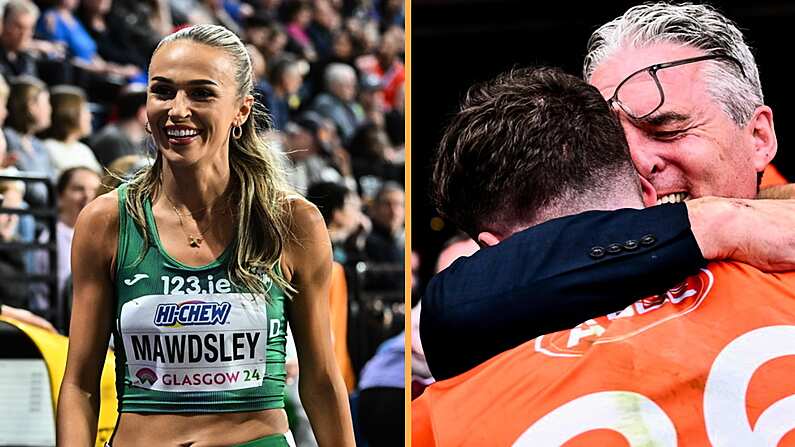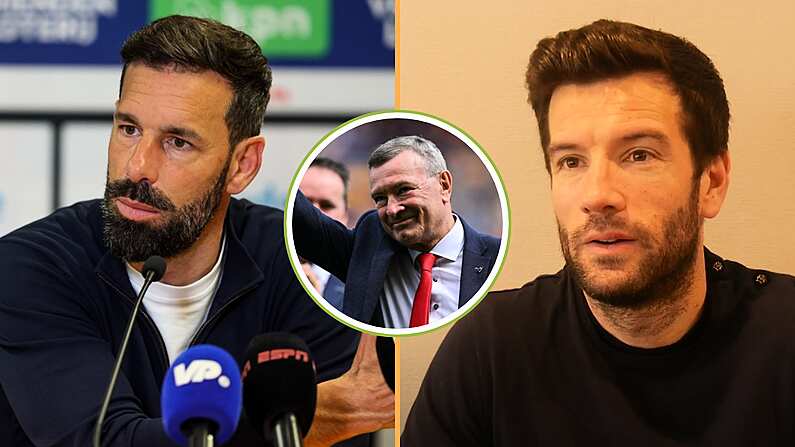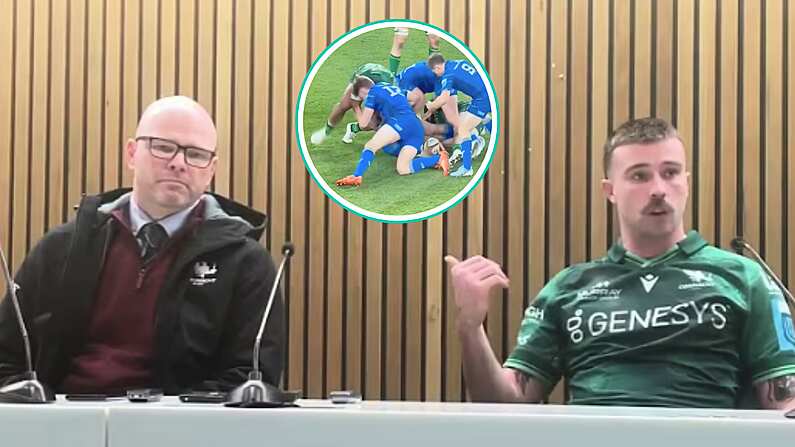Turn the clock back to June of this year. Here's the IRFU's Performance Director, David Nucifora:
This Irish women's 15s team will be the best-prepared team to enter a Women's Rugby World Cup, there is no doubt about that.
What follows: the indignity of (losing) a seventh-place playoff at a World Cup on home soil, the stooping to a new low in the world rankings necessitating qualification games for the next World Cup, and an explosive Irish Times exposé of ramshackle preparations, which included part-time players asked to review videos and devise attacking strategies in their spare time. When they did so, they were not discussed at training.
As expected, Tom Tierney left the head coach role after the tournament but will remain coaching within the IRFU system, his role yet to be publicly defined.
Yesterday, it was advertised that the next coach of the "best-prepared team to enter a Women's Rugby World Cup" will be part-time. When asked for comment regarding the downgrading of the role, the IRFU told Balls that "the decision to return the coaching role to a part-time basis follows feedback from coaches the IRFU has spoken with and a further review of the nature of this role will be completed post the 2018 Six Nations".
Ailis Egan was among the raft of Irish players to step away from the set up after the recent World Cup, having enjoyed a 41-cap international career garlanded with two Six Nations medals. While her international career is over, it is impossible to look at the announcement of a part-time international coach with any kind of ambiguity.
"I'm bitterly disappointed", Egan tells Balls. "For me, it's such a backward step. I don't know what kind of impact that will have on contact time, time to go to see potential players, and then just in terms of the planning and structure around it all. You look at the investment England are putting in at grassroots and international level, and you're asking yourself, are we going to be able to compete?"
The IRFU have conducted a review of the World Cup, with the gathering of feedback concluding on Friday last. Egan praises the input given to players, but is concerned that their main concerns cannot be addressed if the coach is to remain part-time.
It was wide-ranging [the scope of the players' feedback].
That was one of the positives. We did have more skill sessions and more contact sessions than we did before we went into the High-Performance Unit.
So I guess [the main feedback from players] would have been an increase in those, and access to more specialised coaching, in terms of position-specific stuff. Whether you can get that from someone in a part-time role....I don't know.
Egan reveals that the squad knew as far back as June that Tierney would be stepping away after the World Cup, so sees this as a short-term fix, questioning why it could not have been dealt with earlier. This is not necessarily new territory: it took the IRFU four months to announce Tierney as successor to Phillip Doyle.
Redolent of Ruth O'Reily's main complaints to The Irish Times, Egan cites a lack of communication with the players over the head coach role. Balls asks whether she agrees if the current senior squad have been abandoned by those at the top of the union:
In a way, yes. I think there is a lack of clarity and stability in the fact there has been no plan since we left the World Cup. This will leave players questioning whether they should stay involved in the programme, or whether they can stay involved, because most people have full-time jobs.
You need to know what's happening from one week to the next to plan, so if you don't know what's happening from a training perspective, you're stuck in limbo and that leads to players questioning whether you have made the right decision.
Potentially, [players will drop out of the setup]. I hope they don't and I'm hoping there is some kind of grand plan we aren't privy to. But there has been a lack of communication, and I hope that is something that the IRFU will take on board, and start communicating with the players.
I think the girls knew they were looking for someone [for the head coach role], but they didn't know it was part time. I don't think anyone knew that.
Now, I would have guessed before the World Cup had finished that this would be the route they would take.
What made her guess so?
I don't know. It was just a sense.
Here's the rub. Ireland do not have a competitive game until next year's Six Nations. Unlike most of their European rivals, Ireland have no internationals slated for the autumn. So in a situation like this, a part-time coach makes sense. This, however, is Egan's greatest fear:
If you take out the Autumn internationals, in theory, you only need a coach for that Six Nations period. There are potentially not enough fixtures if the IRFU don't continue to invest in the women's game. Look at England, for example. They have a full Autumn international schedule, so they need a full-time coach.
Then they have the Six Nations, and then they have a summer tour, so they obviously need a full-time coach. Do you need that if you're only having games in the Six Nations? Probably not.
That's a major fear, for sure. That's what we did in the past [competitive games restricted to the Six Nations] and that looks like it's going to happen again. There is nothing planned again for this year, when you have Scotland, Wales, France and England all have fixtures in the autumn. They have all started training for the Six Nations. We seem to be two steps behind everyone else.
Such a lack of games - and exposure - for the team frets Egan. While Ireland are idle, England, France, Scotland, and Wales will be improving. " If we don't have the games other teams will and the contact time with coaches, they will slowly but surely get further and further away from us. The likes of England are not a huge way ahead of us in terms of playing ability, but in another five years time?"
Part of Nucifora's optimism ahead of the World Cup was founded on the uniting of the 7s and 15s teams under a "one team" policy, with players from both codes given access to bespoke gym and training facilities in Dublin. Egan has praised the facilities and the camps, but the mixing of these players has been fraught with difficulty. As rugby 7s is now an Olympic sport, some of these players are semi-professional and are funded by Sport Ireland. But they also play 15s, and are playing alongside amateur players who need to hold down a nine to five to get by.
There was controversy earlier this year when the 15s team lost three players to a 7s tournament in Vegas during the Six Nations, and their varying preparation took hold during the World Cup. Egan, for example, works full-time as a fundraiser. When I ask her about the reality of the "one team" policy, she scoffs at the notion there are no differences.
Of course there are differences. It's very different. you have full-time athletes versus part-time people who are trying to be athletes.
I finished work on the 4th of August [five days before the World Cup]. I was doing extra hours so I could cram in as much as I could, so that I could take time off. So you are going into a tournament mentally and physically wrecked. You are training all weekend, and you're then doing gym sessions, and skill sessions.
By the time the tournament comes around, you're not fully rested, and you're not at your peak. The 7s girls are semi-professional, so they are able to rest and recover. So if you're working full-time, which you have to do to survive and live, that's what gets to you.
In 2013, Ireland won the Six Nations Grand Slam to break a six-year winning streak for England. In 2014, they finished fourth at a World Cup having beaten New Zealand en route. In 2015, they won the Six Nations again. Now, says Egan, is not the time for any further backward steps:
That's what is so disappointing. We have worked so hard for so long to get the game to where it is. Irrespective of our performance at the World Cup, we have brought the game to a public awareness to where it deserves a full-time role, and deserves investment. That's what's sad about it. You have girls around the country aspiring to play at a national level, so you need those structures and pathways in place so they can get the most out of it.
The players deserve stability. There is such talent in Ireland and if they do not invest in it, we will be left behind and we will not qualify for the next World Cup. So, they have to put to invest money and resources. They have to.
And let's be honest, it's a disgrace if they don't.
The David Nucifora quotes come from this interview he gave to the IRFU.
See Also: Anger As Irish Rugby Searches For New Women's Head Coach On A Part-Time Basis

